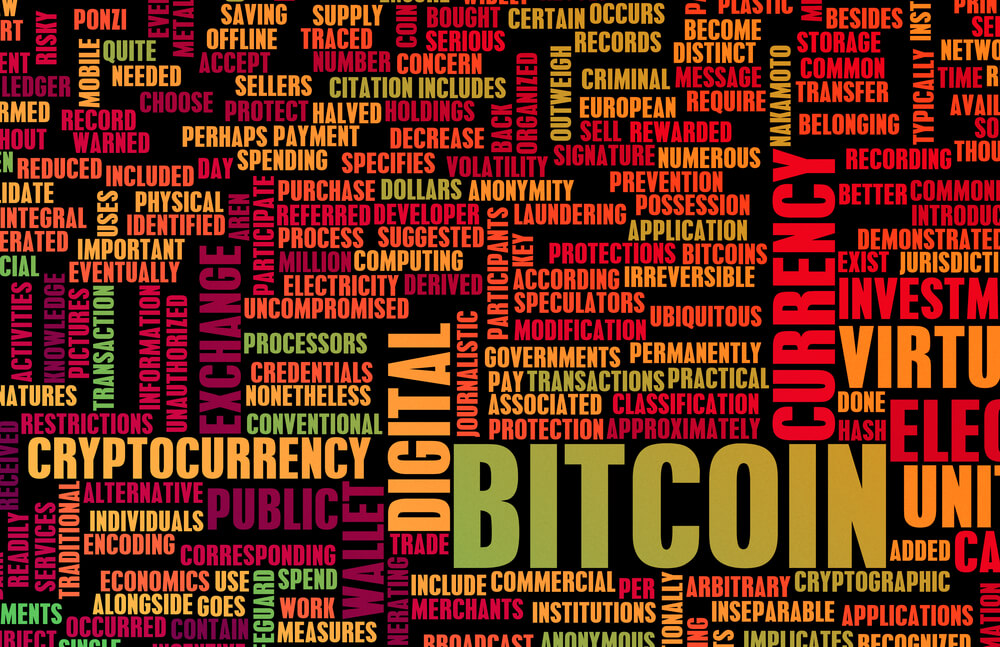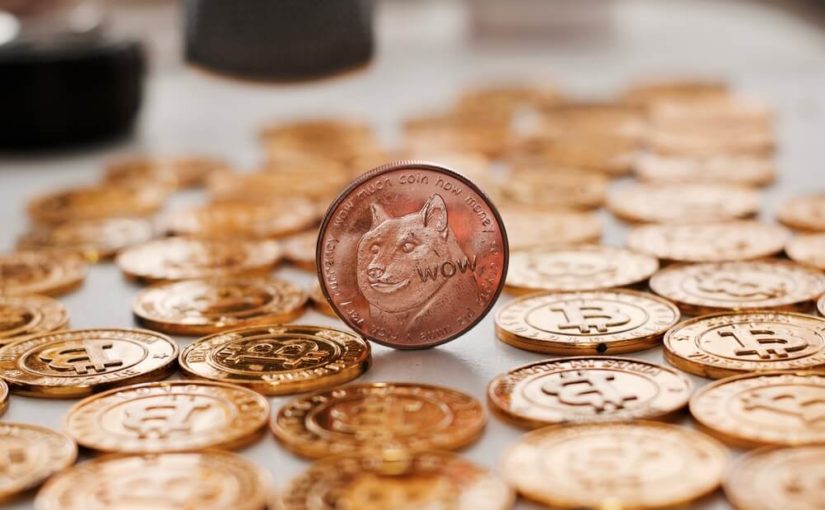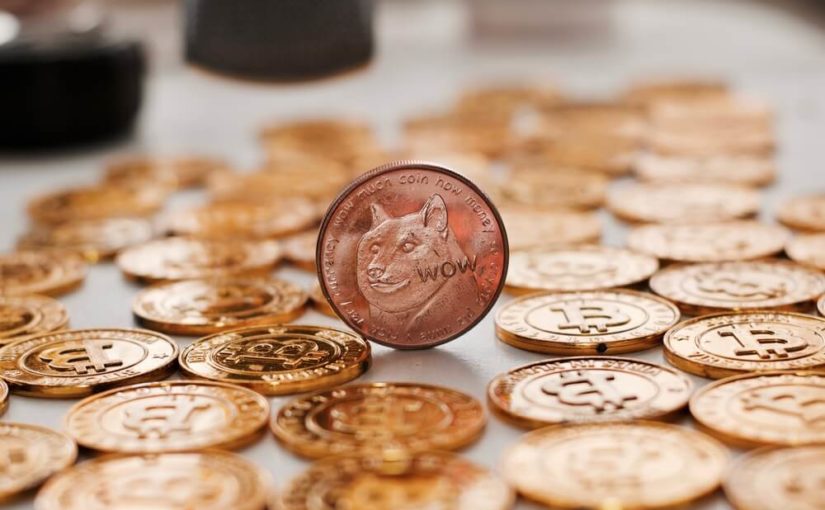Over the past year, the trading price of crypto assets recorded a significant upward trend. Bitcoin, for example, is still experiencing a strengthening over 40% year-to-date as of May 19, 2021. Meanwhile, over the past year, it shot up to 320%. This trend has attracted many Indonesian investors.
The high transaction of crypto assets has made many countries take steps to protect the ecosystem. Globally, Asia has played a significant role in the development of the crypto asset industry over the past decade.
In this region, each country is competing to take part as a hub for crypto and blockchain assets. According to CoinGecko’s report, there were 318 new exchanges, an increase of 706% in the last 18 months.
As many as 40% of them come from Asia.
Indonesia, as the fourth most populous country in the world, is home to a large proportion of the digital business community. Quoting from the e-Conomy 2019 report, as many as 92 million Indonesians are still unbanked, followed by 42 million people in the underbanked group. The rest, there are 42 million people who already use financial or banked services.
This great opportunity is at the same time a serious challenge for the financial industry, many financial analysts believe that unbanked users could be the next potential market in digital currency or crypto.
In Indonesia alone, crypto assets are regulated by the Government through the Ministry of Trade and specifically formulated a special agency under it, the Commodity Futures Trading Supervisory Agency (CoFTRA). This was marked by the issuance of Minister of Trade Regulation No. 99 of 2018 concerning General Policy for the Implementation of Crypto Asset Futures Trading.
CoFTRA has also discussed the establishment of a special exchange for crypto assets. In an interview with DailySocial, Head of CoFTRA, Indrasari Wisnu Wardhana, said that this plan is going through the verifying process the required documents submitted by the Exchange to CoFTRA. In the application, there are several requirements to be fulfilled/completed by the prospective Crypto Asset Physical Market Exchange.
He encouraged candidates for the Crypto Asset Physical Market Exchange to fulfill the requirements as soon as possible, therefore, CoFTRA can immediately issued for approval as a Crypto Asset Physical Market Exchange. “The presence of the Crypto Asset Exchange is very important, but we need to prepare it well, therefore, nothing happened that can harm the community. The Ministry of Trade through CoFTRA is finalizing the establishment process of the institution,” he said.
He continued, the presence of the Futures Exchange in physical trading of crypto assets has a strategic role to oversee physical trading transactions of crypto assets and mitigate risks, especially crypto assets that can be traded on the physical market of the variants that have been set by CoFTRA.
According to CoFTRA’s records, until April 2021, crypto asset customers who actively transact at crypto asset traders reached 4.8 million people with a transaction value of around IDR 237.3 trillion (January-April 2021). Wisnu thought, customers make investments or crypto transactions because they see the value/price of crypto assets that tend to rise from time to time.
The price movement of crypto assets, especially Bitcoin, from January 1, 2021 to April 30, 2021, increased by 95.82% to Rp. 807.3 billion from the previous Rp. 412.2 billion. “This is what drives crypto asset customers to have a high interest in making crypto asset transactions.”
The issued regulation
After the Minister of Trade Regulation No. 99 of 2018, CoFTRA issued another derivative rule in the form of a Perba (CoFTRA Regulation) No. 5 of 2019 concerning Technical Provisions for the Implementation of the Physical Market for Crypto Assets on the Futures Exchange and the amended regulations, as well as CoFTRA Regulation No. 7 of 2020 concerning the Establishment of a List of Crypto Assets that can be Traded in the Crypto Asset Physical Market.
The CoFTRA regulations set out several institutions involved in Physical Trading of Crypto Assets, those are the Futures Exchange, Futures Clearing, Depository Managers and Crypto Asset Traders.
The rapid development has forced CoFTRA to formulate other regulations, including provisions regarding the obligation of prospective Crypto Asset Physical Traders to report to CoFTRA all the identities of registered customers; report all managed wallets; every Customer acceptance process for prospective Crypto Asset Physical Merchants must be carried out with know your customer (KYC) system.
Then, customers are given an understanding or explanation regarding the risks and implementation of Crypto Asset transactions. Another oversight carried out by CoFTRA is the issuance of the Circular Letter of the Head of CoFTRA No. 758/BAPPEBTI/SE/12/2019 concerning Submission of Periodic and Occasional Reports in the context of monitoring the activities of physical traders of crypto assets.
In order to stay in line with developments, CoFTRA has amended CoFTRA Regulation No. 5 of 2019 three times with Commodity Futures Trading Supervisory Agency Regulation Number 3 of 2020 concerning the Third Amendment to Commodity Futures Trading Supervisory Agency Regulation Number 5 of 2019 concerning Technical Provisions for the Implementation of Physical Markets. Crypto Assets on the Futures Exchange.
The summary of the technical provisions in this policy contains:
1. The transaction mechanism that occurs in the Crypto Asset Physical Trader System in the Physical Futures Exchange Market, some of the Crypto Assets are stored in a wallet where the deposit is held and some are stored in the Crypto Asset Physical Trader’s Storage, the deposit of funds, both buying/selling of funds is recorded and kept in a separate account of the Clearing House (70%) and a separate account of a Physical Crypto Asset Trader (30%) and also reported and supervised by the Futures Exchange and CoFTRA;
2. Crypto Asset Physical Merchant is required to have ISO 27001 (information Security Management System) and ISO 27017 (cloud security) and ISO 27018 (cloud privacy) certifications whether Crypto Asset Physical Merchant uses the cloud;
3. Servers used as trading systems must be placed in the country. It’s the same for Crypto Asset Storage Managers;
4. In order to guarantee the Crypto Assets secured, CoFTRA requires that the storage be carried out in the form of hot storage and cold storage, where 50% of the total Crypto Assets managed by the Crypto Asset Physical Merchant must be placed with the Crypto Asset Storage Manager and those with agreement guarantee cooperation with the Crypto Asset Storage Insurance;
5. Of the 50% Crypto Assets kept by Physical Traders of Crypto Assets, at least 70% of them are stored offline or in cold storage and 30% at most are stored online or hot storage;
6. It is prohibited to trade other types of Crypto Assets other than those stipulated in the Perba concerning the list of types of Crypto Assets that can be traded in the Crypto Asset Physical Market, including the prohibition of selling Crypto Assets created by the prospective Crypto Asset Physical Trader concerned or its affiliated party;
7. Mandatory denomination in IDR;
8. In terms of ownership of customer funds, CoFTRA stipulates that Crypto Asset Physical Traders must place 70% of customer funds in a separate account placed with the Futures Clearing House.
CoFTRA’s intention towards all these regulations is to protect the public in crypto assets trading. Reflecting on other countries, there are many platforms that take away the money of their customers or investors.
Limited to trading

As we look closely, all the regulations issued by CoFTRA covers only crypto trading. This means that crypto assets stored for a certain period of time on a platform, are exchanged for other products of the same type, and can be bought or sold by investors through a futures exchange, which is fully regulated by CoFTRA.
Indonesia is one of the countries that recognizes crypto assets as a commodity, not as a currency.
In the Selasatartup session held by DailySocial, Tokocrypto’s COO, TK Hermanda mentioned the regulation regarding crypto’s derivative products, one of which is decentralized finance (DeFi) and centralized finance (CeFi) which is yet to be included in Indonesia’s regulation.
“When it involves trading, it will be under CoFTRA, but when it becomes a new instrument that involves finance, it should be under OJK. That’s my opinion. This discourse will surely develop. OJK should be open with a new variant [crypto]. Therefore, it can’t be limited to trading, there are many derivative crypto assets beyond that to be accommodated,” said the man familiarly called Manda.
Apart from that, Chairman of the Indonesian Blockchain Association (ABI) Oham Dunggio highlighted that the current crypto asset business processes, is it clearing, depository, and exchange processes, occur individually in each entity. He said, this is quite basic issue that should be highlighted by CoFTRA before entering into other matters, such as taxation.
“In my opinion, this crypto asset business process is only in one entity assisted by blockchain technology. For me, this is only basic before it penetrates on other things, such as taxation,” Oham said.
The presence of ABI and ASPAKRINDO (Indonesian Crypto Asset Traders Association) is tasked with guarding the crypto industry to grow healthy. ABI is an association that focuses on blockchain technology with two main focuses, advocacy and education. Meanwhile, ASPAKRINDO has a vision to realize the growth and development of the crypto asset industry in Indonesia.
ASPAKRINDO’s Secretary, Robby argued, CoFTRA has high concerns as it involves consumer funds, therefore they are more careful in making rules and policies.
He even considered that CoFTRA is the most prepared regulator for the Crypto Asset Trading policy. The reason is, there are some foreign exchanges that do not follow the regulations in their country.
“ASPAKRINDO’s role is to bridge the needs of Crypto Asset Physical Traders registered in Indonesia with CoFTRA in formulating the best rules for Indonesian consumers,” Robby said.
In addition to the marketplace for trading crypto assets, derivative products have emerged, such as DeFi (decentralized finance), NFT (Non Fungible Token), and others present in Indonesia. Tokocrypto and Pluang are two examples that offer such services to their investors. Next, there is NOBI that specifically offers passive income for crypto investors through three DeFi-based products (staking, saving, and strategy).
Responding to this derivative product, Wisnu said that since CoFTRA Regulation Number 5 of 2019, people who want to trade crypto assets must be careful, study the characteristics of the investment instrument, and know the background/profile of the trader in charge, whether the trader has registered with CoFTRA.
To date, CoFTRA has recorded as many as 13 Physical Crypto Asset Traders who have met the requirements to trade crypto assets. Then set as many as 229 crypto asset coins eligible for trading on the Crypto Asset Physical Trader. Tokocrypto is the first company registered with CoFTRA since November 2019.
He said, with optimism and targeted policies, it is not impossible that crypto asset trading will grow and have competitive diversification from other types of investment assets, including stocks in the future.
“Looking at what is happening right now, there are already many types of diversification of crypto assets, ranging from stable coins and other types of crypto assets based on the development of Ethereum as the backbone.”
Wisnu also sees that the implementation of crypto asset trading will have many challenges. If not closely monitored, this instrument can be exploited by irresponsible parties such as marketing through MLM or Ponzi schemes which are currently rife in trading crypto assets that have not been approved by CoFTRA.
“Not to mention that crypto assets can be used as a means of money laundering and suspicious transactions for illegal acts such as terrorism. For this reason, it is necessary to supervise and cooperate with relevant authorities in monitoring crypto asset trading such as PPATK and the Police to prevent transactions that are prohibited in physical trading of crypto assets,” Wisnu said.8
–
Original article is in Indonesian, translated by Kristin Siagian
Gambar header: Depositphotos.com


